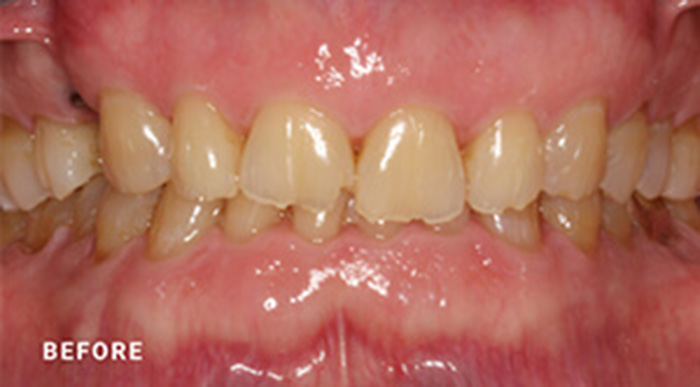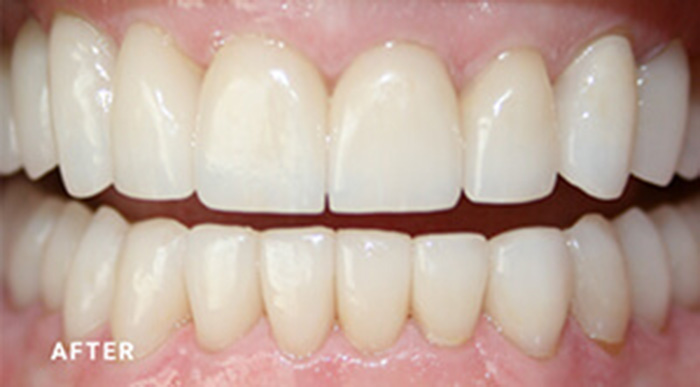Searching for TMJ treatment near you? Schedule an appointment with Dr. West to learn about your options. Depending on your circumstances, you may be a candidate for an occlusal splint or need to adjust your bite with a porcelain dental crown. Regardless of your situation, you can trust our dentist in Jacksonville, FL, to recommend the perfect solution.
Madison suffered a lifetime of migraines caused by grinding his teeth. This amazing smile makeover was a combination of 28 porcelain crowns with some implant crowns. Madison is experiencing a whole new life and is proud to share his smile for the first time in many years.



Wish you could alleviate your like Madison did? Schedule a consultation with our TMJ dentist in Jacksonville, FL.
Do you suffer from jaw pain? When you open and close your mouth, do you hear or feel a click or pop? Discomfort in the TMJ, or temporomandibular joint, can range from minor to debilitating—and it needs to be treated to prevent a whole host of adverse side effects. Dr. Jacqueline West is an expert in the treatment of TMD, or temporomandibular joint dysfunction.
TMJ pain relief is possible! One popular method of treating the TMJ involves using an equilibration and occlusal adjustment, or improving the way your upper and lower teeth fit together to take stress off of the jaw. This may be achieved by adding to the tooth enamel with a dental crown or carefully removing excess tooth enamel on certain teeth.
Dr. West will take X-rays, photographs, and impressions of your teeth to identify the problem and pinpoint the best solution.
An occlusal splint is a special device that can help and related teeth grinding. It is custom-made for your dentition from impressions and simulated movement of your jaw. Worn temporarily, it works by guiding your TMJ into the proper position as you open and close your mouth and move it from side to side. An occlusal splint also provides a cushion to protect your enamel from teeth grinding and jaw clenching.
TENS (transcutaneous nerve stimulation) works by sending small electrical currents through the skin to target a certain area. When applied to the TMJ, it can relieve pain and help to relax the area to prevent the tension that causes discomfort to begin with.
For this method, Dr. West will place electrode patches onto the jaw and send quick pulses to the area. Many people find this approach is effective for relieving their TMJ pain.
Dr. Jacqueline West is proud to serve as your local . To schedule an appointment and learn if you’re a candidate for TMJ treatment, please call West Dentistry at (904) 387-3333. You may also fill out our online contact form and someone from our team will reach out to you soon.